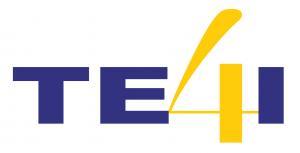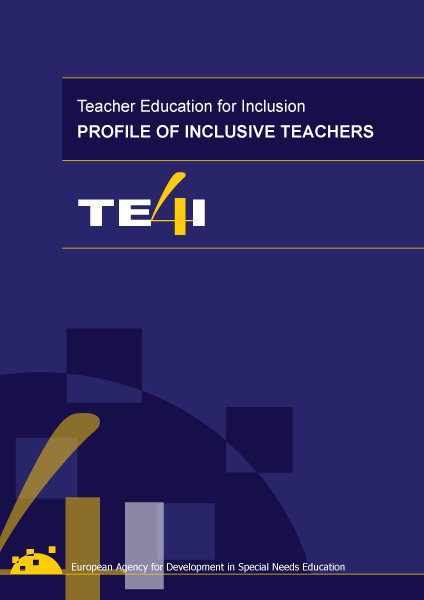The Teacher Education for Inclusion project has explored how all teachers are prepared via their initial education to be inclusive. The three-year project set out to identify the essential skills, knowledge and understanding, attitudes and values needed by everyone entering the teaching profession, regardless of the subject, specialism or age range they will teach or the type of school they will work in.
The Profile of Inclusive Teachers is one of the main outputs of the project. It was developed as a guide for the design and implementation of initial teacher education (ITE) programmes for all teachers. The intention is that the Profile should be considered as stimulus material for identifying relevant content, planning methods and specifying desired learning outcomes for ITE and not a script for ITE programme content.
A Profile insert accompanying the report has been drafted as non-copyright material for practitioners and policy makers to be adapted, modified and re-purposed as required providing a reference to the original source is given. The full report and the inserts are available in all official Agency languages.
The Profile document draws upon various activities and discussions involving project experts and over 400 other stakeholders in education over a period of three years – policy makers and practitioners from a range of school and teacher education sectors; ITE and in-service student teachers; parents and families; and learners – who have collectively debated the competences that all teachers need to support their work in inclusive settings.
The objectives for the Profile are to:
- Identify a framework of core values and areas of competence that are applicable to any initial teacher education programme;
- Highlight the essential core values and areas of competence necessary for preparing all teachers to work in inclusive education considering all forms of diversity;
- Highlight key factors supporting the implementation of the proposed core values and areas of competence for inclusive education within all ITE programmes;
- Reinforce the argument made within the TE4I project that inclusive education is the responsibility of all teachers and that preparing all teachers for work in inclusive settings is the responsibility of all teacher educators working across ITE programmes.
Four core values relating to teaching and learning have been identified as the basis for the work of all teachers in inclusive education. These core values are associated with areas of teacher competence. The areas of competence are made up of three elements: attitudes, knowledge and skills. A certain attitude or belief demands certain knowledge or level of understanding and then skills in order to implement this knowledge in a practical situation. For each area of competence identified, the essential attitudes, knowledge and skills that underpin them are presented.
The Profile has been developed around this framework of core values and areas of competence:
Valuing Learner Diversity - learner difference is considered as a resource and an asset to education.
The areas of competence within this core value relate to:
- Conceptions of inclusive education;
- The teacher’s view of learner difference.
Supporting All Learners - teachers have high expectations for all learners’ achievements.
The areas of competence within this core value relate to:
- Promoting the academic, practical, social and emotional learning of all learners;
- Effective teaching approaches in heterogeneous classes.
Working With Others - collaboration and teamwork are essential approaches for all teachers.
The areas of competence within this core value relate to:
- Working with parents and families;
- Working with a range of other educational professionals.
Personal Professional Development - teaching is a learning activity and teachers take responsibility for their lifelong learning.
The areas of competence within this core value relate to:
- Teachers as reflective practitioners;
- Initial teacher education as a foundation for ongoing professional learning and development.

